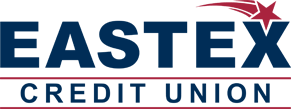April is designated as National Financial Literacy Month in the United States. The purpose of having an entire month dedicated to financial literacy is to raise public awareness about the importance of financial education and the serious consequences that can occur when there is a lack of understanding about personal finances. According to Nerdwallet.com, eight out of ten Americans carry some sort of debt, with the total debt owed by U.S. consumers amounting to $12.58 trillion, which makes financial literacy a pressing issue.
What is Financial Literacy?
Financial literacy is understanding how money works in the world. It is the knowledge that allows you to make informed decisions about your financial resources for a lifetime of financial well-being, such as how you earn money, manage it, and invest it. Understanding your finances and how life events can affect your financial future is important and can help you prepare for the unexpected.
Tools for Success
Understanding your personal finances is the first step to being financially literate. This can be accomplished by gaining an overview of your current financial situation, which can be determined by identifying the following:
- What is your reliable income? This is the amount you are earning or gaining monthly less the amounts you pay out monthly for things such as taxes, insurances, stocks, child support, etc.
- What are your debt obligations? These include recurring monthly obligations with interest, such as credit card debt, mortgages, student loans, and vehicle loans.
- Establish financial priorities. Are you trying to pay off unsecured or high interest debt? Are you saving for a down payment for a house? Do you want to buy a car or take a vacation? Are you wanting to build your savings account? Determining what your financial priorities are will enable you to effectively work towards them.
- Track your daily expenditures. How much are you spending on utilities, gas, groceries, meals out, phone bills, babysitters, clothing, subscriptions, activities and memberships? By tracking your daily expenses, you can see where every dollar you earn is spent and identify expenses that can be reduced.
Budgeting for the Future
With your financial information in mind, set financial goals for yourself. Create and adhere to a realistic budget where you don’t spend above your means. Your budget will vary depending on what stage of life you are in, your financial obligations, and current income situation. Your budget can include short-term goals, such as saving for a summer vacation, or long-term goals, such as being able to pay your home mortgage off several years early. It is important to have a financial safety net, no matter what your budget is, so it is important to always put some money away for the unexpected. At Eastex CU we understand the importance of financial literacy and love helping our members achieve greater financial stability. We have several budget tools, such as our Savings, Retirement, Mortgage, and Auto Loan Calculators that are highly useful in planning and achieving financial success.




